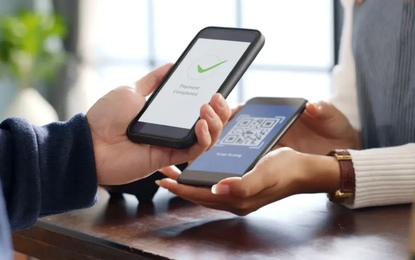

Decentralized identity allows banks to simplify the verification of users’ data while minimizing the risks. Historically, people’s identities have been analog, manifested in a piece of paper that attests to an individual's existence. But as we spend more time in virtual environments such as devices, applications and online services, identification has evolved. Decentralized digital identity is an information exchange framework where someone’s personal details, such as their name or date of birth, become unique credentials registered on blockchain technology. It’s a system that makes it impossible to modify, copy or manipulate the data. The information doesn’t belong to a state or entity but to the customer, which facilitates its portability, use and exchange in the digital world. In addition, it's secure, since users alone control the permissions for the use of their data. With that in mind, what could a decentralized ID do for the banking industry? Companies such as Microsoft are already working on preliminary solutions for companies to enable self-service platforms and for their users to issue identity certificates with verifiable and auditable electronic data, which will allow banks to interact with less risk. And if, for example, the user decides to unsubscribe from an app, service or platform, they can remove the certificate along with all of their data. This system also allows users to take their certificate to the platforms and give them traceability and transparency, provided that the companies that want to make use of the data operate on blockchain. On a global level, decentralized identity is still developing, but it is becoming a sovereign identity solution that gives people back privacy and control over the information they share online. It also supports access to financial services by providing unique user information.
Digital identity initiatives can do a lot for financial inclusion. In India, the national, universal, and interoperable digital identity system launched in 2010 helped incorporate billions of users into the financial system, by providing them with valid identification in both the virtual and real worlds, which they didn’t have before. Decentralized identity even goes a step further, as users can create their ID with the data they want to provide and share it with whomever they choose; for example, they can opt out of sharing sensitive data, such as phone numbers or addresses. Creating a certificate starts with the registration of basic data to verify the user's identity. These are then entered into the blockchain, so that when a third party wants to access the information, they can see it but not possess it. So far, entities have responded to new virtual needs by leveraging the proliferation of mobile devices to facilitate accurate digital onboarding processes that establish a unique identity for each customer. Thus, they rely on information that the customer knows (passwords or PINs), that they own (identity cards), or on unique features (facial or ocular biometrics) and even data such as location (leveraged on geolocation by IP address) to achieve verification. But this is only the first step in solving the problem of digital identity. With decentralized IDs, widely used security methods such as passwords are expected to become obsolete, because the user has a unique and non-transferable key to access the certificate. The potential use cases for these protocols are limitless, from creating universal medical records to increasing financial portability in open banking models by connecting transactional data with the identity that the user can share with institutions. Decentralized digital identity is expected to reach maturity in the coming years, but banks are strongly recommended not to overlook it, especially because of its cybersecurity potential. For financial institutions, moving from paper to digital has been a natural progression that responds to the needs of the market and users. In this sense, decentralized identity will be a new challenge to improve customer inclusion, experience and security.
Join our online community and stay up to date with the latest news from the world of technology.